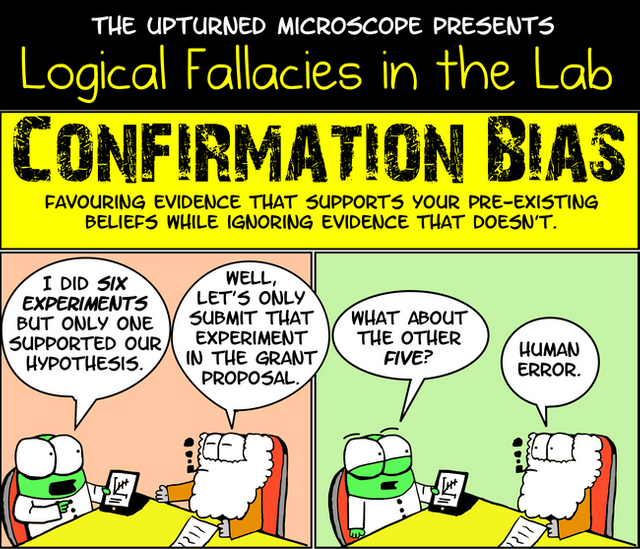Our tendency to cherry-pick information that validates our previous opinions or thoughts is known as confirmation bias. Confirmation bias describes how two people with opposing viewpoints on a subject might both see the same information and feel justified by it. When it comes to deeply held, ideological, or emotionally charged beliefs, this cognitive bias is most prominent.
Failure to analyse information objectively can result in significant errors. We can learn to recognise it in ourselves and others if we grasp this. We should be wary of data that appears to confirm our beliefs right away.
Why You Should Seek Out Disconfirming Evidence Because of Confirmation Bias
Understanding how confirmation bias works can help us understand why we feel others "cannot see sense." In their book The Web of Belief, Willard V. Quine and J.S. Ullian explained this bias as follows:
The want to be correct and the desire to have been correct are two distinct desires, and the sooner we can distinguish them, the better. The thirst for truth is the desire to be correct. There is nothing but positive to be said for it on all points, both practical and theoretical. On the other side, the urge to be correct is the pride that precedes a collapse. It prevents us from realising we were mistaken, and hence halts the advancement of our knowledge.
Experiments dating back to the 1960s indicated that rather than questioning or seeking new beliefs, we tend to affirm the ones we already have. Other studies has showed our unwavering desire to impose our beliefs.
Warren Buffet said that, what the human being excels at is interpreting all new information while maintaining their previous conclusions.
Confirmation bias, like many mental models, was initially identified by the ancient Greeks. Thucydides described this tendency as follows in The History of the Peloponnesian War:
”Because it is human nature to entrust what they desire to haphazard hope, and to dismiss what they do not desire with sovereign reason.”

It's understandable that we employ this mental shortcut. It takes a lot of mental work to evaluate evidence (especially when it's intricate or confusing). Our minds seek to take shortcuts whenever possible. This cuts down on the time it takes to make decisions, which is especially useful when we're under pressure. Our brain are unequipped to deal with the modern world, as numerous evolutionary biologists have pointed out. People have had very little new information over their lifetimes for most of human history. The majority of decisions were made for the sake of survival. We are continuously bombarded with new information and must make several complex decisions every day. We have a natural propensity to take shortcuts to avoid feeling overwhelmed.
“We give extra weight to information that permits us to come to the conclusion we want to reach,” Ziva Kunda stated in “The Case for Motivated Reasoning.” Accepting evidence that supports our beliefs is simple and needs no mental effort. We become wary of contradictory information and look for a justification to dismiss it.
Sia Mohajer wrote in her book The Little Book of Stupidity that confirmation bias is so pervasive in one’s development and reality that one may not even be aware of it. We seek evidence that supports our worldviews and ideas, while ignoring evidence that contradicts them... We have been given the gift of cognitive biases in order to simplify the world and make it correspond to our expectations.
And as stated by Francis Bacon, once the human mind has formed an opinion, it drags everything else to support and agree with it. Despite the fact that there are a greater quantity and weight of examples on the other side, it either ignores and dismisses them, or sets them aside and rejects them.
REFERENCES:
https://www.britannica.com/science/confirmation-bias https://journals.sagepub.com/doi/10.1037/1089-2680.2.2.175 https://thedecisionlab.com/biases/confirmation-bias/DONT FORGET TO UPVOTE, RESTEEM. FOLLOW FOR MORE SUCH ARTICLES :-))
Nice to read your post .
You have added correct information source to your post .
Keep posting and stay with our community .
Thank you
Downvoting a post can decrease pending rewards and make it less visible. Common reasons:
Submit